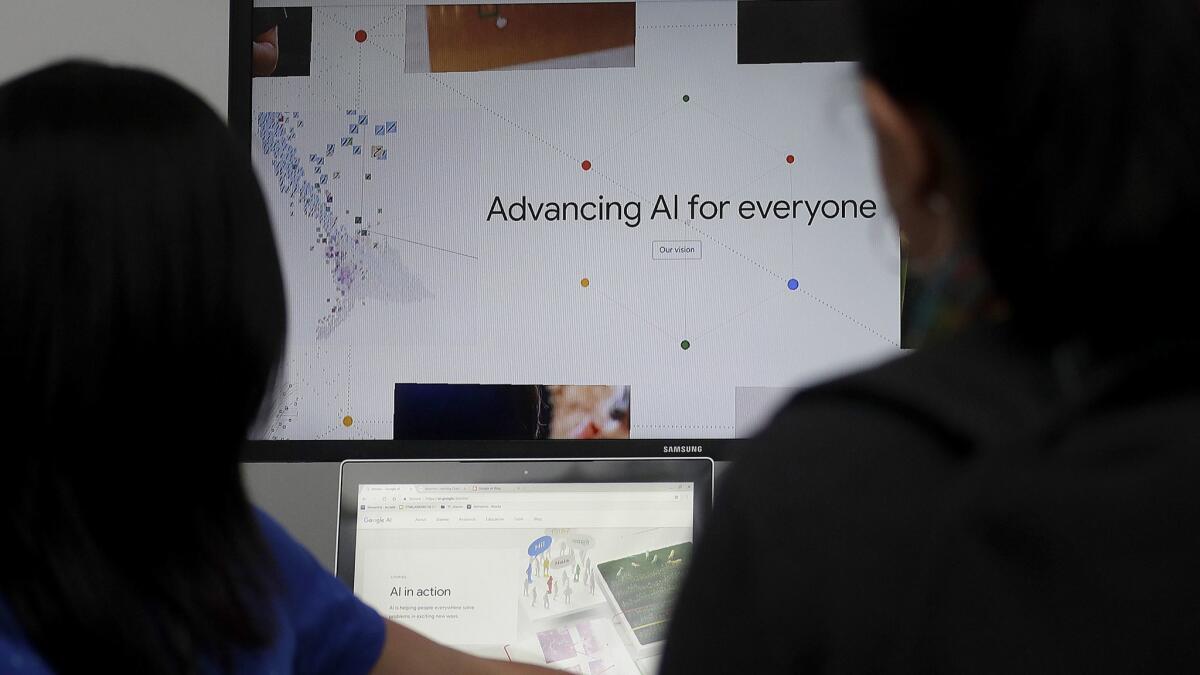Google won’t renew Pentagon artificial intelligence drone deal after staff backlash

- Share via
Google decided not to renew its contract with a Pentagon drone program once it expires, after extensive protests from employees of the internet giant.
Diane Greene, head of the cloud business at Alphabet Inc.’s Google, told staff on Friday that the company will let the deal lapse when it runs out in March 2019, according to people familiar with the meeting.
Signed in September, the contract lets the Defense Department use Google artificial intelligence tools to analyze drone footage for an initiative called Project Maven. It was part of a major push by Greene to break into the lucrative business of selling cloud services to the government, where Amazon.com Inc. and Microsoft Corp. dominate.
“We’ve always said this was an 18-month contract that we did, so it ends in March of 2019. And there will be no follow-on to Maven,” Greene told cloud division staff on Friday.
The pact could have generated millions in revenue. But inside a company whose employees largely reflect the liberal sensibilities of the San Francisco Bay Area, the contract was about as popular as President Trump.
Not since 2010, when Google retreated from China after clashing with state censors, has an issue so roiled the rank and file. Almost 4,000 Google employees, out of an Alphabet total of 85,000, signed a letter asking Google Chief Executive Officer Sundar Pichai to nix the Project Maven contract and halt all work in “the business of war.”
The petition cited Google’s history of avoiding military work and its famous “do no evil” slogan. One of Alphabet’s AI research labs had even distanced itself from the project. At least a dozen staff resigned over the issue.
Pichai’s challenge is to find a way of reconciling Google’s dovish roots with its future. Having spent more than a decade developing the industry’s most formidable arsenal of AI research and abilities, Google is keen to wed those advances to its fast-growing cloud-computing business. Rivals are rushing to cut deals with the government, which spends billions of dollars a year on all things cloud. No government entity spends more on such technology than the military.
Greene’s division is also pushing for a much larger Pentagon cloud deal -- the multibillion-dollar Joint Enterprise Defense Infrastructure, or JEDI, contract.
Gizmodo reported Greene’s decision earlier on Friday. A Google spokesman did not immediately return a request for comment.
More to Read
Inside the business of entertainment
The Wide Shot brings you news, analysis and insights on everything from streaming wars to production — and what it all means for the future.
You may occasionally receive promotional content from the Los Angeles Times.










